The Wolf Gift Read online
Page 16
He took off his shoes and slipped into the huge rain boots. He put the scarf around his neck, tucked it in, and put the sunglasses in the coat pocket along with his phone and his wallet and his keys, and picking up the ski mittens, and his computer, he went out.
He almost forgot to set the alarm, but he remembered it and punched in the code.
All the lights were still on.
As he drove away, he could see in his rearview mirror the lights burning all over the first and second floors. He liked it. The house looked alive and safe and good to him.
Oh, this was glorious to own this house, to be here in this dark forest once again, to be close to this immense mystery. It felt good to work his feet as he drove. He stretched his fingers, then closed them tight on the leather-covered steering wheel.
The rain was washing over the windshield of the Porsche, but he could see through it quite easily. His headlamps flashed over the uneven bumpy road ahead, and he found himself singing as he rode along, pushing the speedometer as high as he dared to go.
Think. Think like a kidnapper who has to hide forty-two children. Think like a ruthless tech genius that can bludgeon a little girl to death and throw her on a lonely spit of beach in the rain, and get back to where he’s warm and comfortable, where he’s got his computer handy for routing his bank demands and his calls.
Why, those kids are probably right under everybody’s nose.
10
REUBEN KNEW THE BACK ROADS of Marin County the way he knew the streets of San Francisco. He’d grown up visiting friends in Sausalito and Mill Valley, and taking the inevitable hikes on Mount Tamalpais and through the breathtaking paths of Muir Woods.
He didn’t need to visit the sheriff’s office before beginning his little dragnet, but he did it anyway, because he was hearing the voices now clearly, all around him, and he knew he’d be able to hear their voices inside without their ever knowing it, of course, and they just might know something they were not telling the world.
He parked near the San Rafael Civic Center and took up his stand in the trees, far from the gaggle of reporters camped before the doors.
His shut his eyes, and sought with all his will to home in on the voices within the office, surfing for the likely words these people would be repeating, and within seconds he was picking up the threads. Yes, the kidnappers had called again, and they weren’t going to tell that to the public, no matter who was demanding it. “We tell what serves a purpose!” a man insisted. “And there is no purpose.” “And they’re threatening to kill another child.”
Babble and protest; point and counterpoint. The bank in the Bahamas would give them absolutely no cooperation, but in truth their hackers weren’t finding out anything there that was helpful on their own.
But the body of the little girl, rain or no rain, surf or no surf, had yielded soil samples from shoes and clothing that connected her to Marin. Of course that wasn’t conclusive; but the absence of any other soil samples was a good sign.
And it was all Reuben needed to confirm what he already suspected.
Cop cars were crawling the forest and mountain roads.
There were random checkpoints and house-to-house searches.
So law enforcement was his only enemy now as he began his search.
He was getting back in the car when something caught him off guard. It was the scent—the scent of evil that had been so unmistakable in the nights before.
He turned his head, uncertain, not willing to be drawn off on any errand other than the kidnap, and then the voices came clear to him from the melee of the reporters—two youthful, mocking voices, offering innocent questions, relishing answers that gave them information they already possessed. Sinister, particular, undeniable. “For our school paper, we just thought we’d come out here.…”
“And did they really just beat her to death, poor little girl!”
He felt the tingling all over the surface of his skin, as sweet and pervasive as the revulsion.
“Well, we’re off now, we have to get back to San Francisco.…” But that wasn’t where they were going!
He went to the edge of the little thicket in which he’d been hiding. He saw the two young men—Princeton haircuts, blue blazers—waving good-bye cheerily to their reporter comrades.
They were hurrying across the parking lot towards a waiting Land Rover with its lights on. Driver inside anxious, scared out of his wits, Will you come on!
It was all a matter of sharp ugly musical sounds to him, the snickering, boasting. The syllables were almost unimportant. How they were wallowing in the excitement, the intrigue, as they piled into the car. The driver was a sniveling coward without a particle of empathy for the victims. He could smell that too.
He sped around the periphery of the parking lot, easily picking up their trail as they headed towards the coast.
He had no need to see their taillights; he could hear every word of their ugly banter. No one knows shit!
The driver was near hysterical. He didn’t like this, he wished to God he’d never got into it. He was stammering that he wasn’t going back there, no matter what they said. That was just nuts, driving up there, and mingling with the reporters. The other two ignored him, congratulating each other on a triumph.
The scent was in the wind and the scent was strong.
On through the night Reuben followed them. The conversation had turned to technicalities. Should they dump the body now tonight on the Muir Woods Road or wait a few hours, maybe closer to dawn?
The body; Reuben caught the scent of it; they had it in the car with them. Another child. His vision sharpened; he saw them up ahead in the blackness, saw the silhouette of one laughing young man against the back window; caught the frantic curses of the driver who struggled to see through the rain.
“I’m telling you Muir Woods Road is too damn close,” said the driver. “You’re pushing it, just pushing it.”
“Hell, the closer the better. Don’t you see the perfection of it? We should dump it across the street from the house.” Laughter.
Reuben brought the car up closer, caught the scent so thick he could scarce breathe. And the smell of decomposition. It made him gag.
His skin was crawling with sensation. He felt the spasms in his chest, the riot of pleasurable feeling in his scalp. The hair was coming slowly all over his body. It felt like loving hands were everywhere stroking him, coaxing the power.
The Land Rover picked up speed.
“Look, we’ll give them till five a.m. If they haven’t responded by then by e-mail, we dump the body. It will make it seem like we just killed him.”
So it was a little boy.
“And if there’s nothing by noon, I say we dump the teacher with the long hair.”
Good God, were they all already dead?
No, that wasn’t possible. They just weren’t making any distinction between the living and the dead because they were planning to kill all of them.
On he drove as his rage mounted.
He was sitting higher in the seat, and his hands were covered in hair. Hold on, hold on tight. His fingers were retaining their shape. But the mane had come down around his shoulders, and his vision was growing ever sharper, clearer. He felt he could hear every single sound for miles.
The car seemed to be driving itself.
The Land Rover made a sharp turn up ahead. They were cruising now into the deeply wooded town of Mill Valley, following a winding road.
Reuben dropped back.
Then another chorus of sounds flooded his ears.
It was the children, the children crying, and sobbing, and the women’s voices crooning to them, singing, comforting them. They were in an airless place. Some of them were coughing, others moaning. He had a sense of utter darkness. He was almost there!
The Land Rover again picked up speed and turned down a neglected dirt road. The trees swallowed the red taillights.
Reuben knew exactly where the children were. He could feel it.
He pulled the Porsche over into a thicket of oaks on a bluff quite high above the deep valley into which the Land Rover had gone.
He got out of the car, and stripped off the awkward uncomfortable clothes and boots. The change had now taken full possession of him, with the inevitable wash of ecstasy.
He had to force himself to hide the clothing inside the car, but he knew that was essential, just as it was to lock the car, and hide the key in the roots of the nearby tree.
The Land Rover was way down there, just turning into the grassy clearing before a large impressive house with sprawling decks off each of its three well-lighted stories. Beside the house, and to the rear of the property, shrouded by trees, stood an old vine-covered barn.
The children and the teachers were in the barn.
The mingled voices of the kidnappers rose like smoke to his nostrils.
Down the slope he bounded, covering the yards and yards between him and his victims, leaping from one tree after another, passing one small sleeping hillside house after another, until he landed in the clearing just as the young men were entering the house.
The place glowed like a wedding cake beyond them against the night.
A roar came out of Reuben before he willed it, ripping from his chest and his throat. That anything but a beast could roar like that was impossible.
All three of the young men turned in the vestibule of the house, and saw him plainly rush towards them. They were nineteen, maybe twenty years old. Their screams were lost in the sounds of his own growls. One man fell down but the other two—the crafty ones, the exultant ones—turned to run.
He caught the first man easily and ripped his neck open, watching the blood spurt. With all his soul, he wanted to devour the man, to close his jaws on his flesh, but there was no time. He lifted the broken body, squeezing it greedily in his paws, and then relinquished it, heaving it far away from him, out towards the distant road.
Oh, too little, too quick!
With a flying leap, he caught the other two struggling to get out of the back door which was apparently locked. One of them was clawing hysterically at the glass.
The other had a gun. Reuben caught it, clearly breaking the man’s wrist as he wrenched it from the man and cast it aside.
He was going to close his jaws on this one; he couldn’t stop himself, he had to do it. He was so hungry for it! And why not, because he would never never allow this man to live.
He couldn’t stop his ravening growls as his teeth sank into the man’s skull and throat. He clamped down as hard as he could, and felt the bones crack. He heard them crack. A whine came out of the dying man.
It thrilled Reuben to run his tongue over the blood pouring down the man’s face. Killer, filthy killer.
He bit deep into the man’s shoulder, and tore loose both cloth and flesh. The taste of the flesh was rich and overpowering, mixed with the stench of evil, the stench of viciousness, the stench of utter corruption. He wanted to unwrap the man and gorge himself on his naked flesh. This was always what he’d wanted to do; and why didn’t he give in to it?
But where was the other culprit? He could not let that last of the trio escape.
No chance of that. The third man was helpless. He had slipped down into the corner and was shaking violently. He held out his two hands. Water was gushing out of his mouth or was it vomit? He had urinated on himself, and the urine was puddling around him on the tiled floor.
The hideous spectacle of him maddened Reuben. Murdered the children, murdered them. The room is rank with the stench of it. And rank with the stench of cowardice too. He lunged for the man and caught his chest in both paws, crushing it, hearing the bones snap, and staring at the man’s white and shuttering face until the eyes went dim. Oh, you died too soon, you craven animal.
He slammed the jangled body against the floor. Still unsatisfied, his growls as loud as before, he picked up the corpse and threw it against the side window of the room and the glass shattered as the body vanished in the falling rain.
A sudden terrible disappointment gripped him. They were all dead. He moaned aloud. A rough sob came out of his chest. It had been way too fast, and he threw back his head and roared again as he had before. His jaws ached. He clenched and opened and roared again. It was the worst craving he’d ever felt. He could have torn at the frames of the doors with his teeth; he wanted to lock his teeth again on anything that he could find.
The saliva was dripping from his mouth. He wiped at it angrily. His paws were streaked with gouts of blood. But the children, have you forgotten the children? Have you forgotten why you are here?
He staggered through the house back towards the front door. He slammed at the mirrors and the framed pictures that covered the walls. He wanted to smash the furniture. But he had to get to the children.
An alarm keypad caught his eye, like the one in Mendocino. He hit the blue medical alert button and the red button for fire.
At once a whooping shrieking wail erupted in the stillness.
He covered his ears as he cried out. The pain was unbearable; his head throbbed. There was no time to find the source of this deafening sound and stop it.
He had to hurry. The sound was driving him mad.
He reached the doors of the barn in a split second, and ripped off the locks, fracturing and splintering the doors as they fell in.
There in the bright light from the house, he saw the bus, draped in chains and tied around and around with duct tape—a torture chamber.
The children were squealing in a frenzy, their cries thin, and shrill, the whooping clarion of the alarm almost swallowing the sound. He could smell their terror, their desperate excitement. They thought they were about to die. In a matter of seconds they would know they had been saved. They would know that they were free.
His claws tore the tape as if it were tissue paper. With one paw he smashed the glass of the door and then ripped the door off the bus.
A revolting smell assailed his nostrils—feces, vomit, urine, sweat. Oh, the cruelty of it. He wanted to howl.
He backed up. The blaring alarm was disorienting him, crippling him. But the job was nearly done.
He made his way out of the barn, back into the rain, the ground mushy beneath his feet, wanting desperately to recover the dead child from the Land Rover, and put its body where it would surely be found, but he could not endure the noise anymore. They would have to find it, and surely they would. Yet it felt wrong to leave it. Wrong, not to somehow prepare for them the entire scene.
Out of the corner of his eye he saw the figures, large and small, scrambling from the bus.
They were moving towards him. And surely they saw him, saw what he was, saw in the lights from the windows behind him the blood drenching his paws, his fur.
They were going to be more afraid! He had to get away.
He made for the wet shining trees at the back of the property, and headed for the great silent forest that lay directly west—Muir Woods.
11
MUIR WOODS STRETCHED for some five hundred and fifty acres, including some of the oldest redwoods yet standing in California, trees that soared over two hundred feet, and had been alive for over a thousand years. At least two creeks ran through the deep canyon of the park. And Reuben had traveled its hiking trails many a time.
He plunged into the enveloping stillness now, hungry for the solitude that had driven him to Mendocino, and glorying in his strength as he climbed the immense trees, leaping from the branches of one to another as if he had wings. Everywhere the scent of other animals tantalized him.
Deeper into the park he went, only dropping down to the soft leafy floor when all the human voices of the night had died, and only the rain sang to him, and the muted sounds of a thousand little creatures, nestled in the ferns and the leaves, whose names he couldn’t know. Above, the birds rustled in the branches.
He was laughing out loud, singing nonsense syllables, roaming, staggering, and then scaling a tree again, as high as he cou
ld go, the rain falling like needles on his eyes, until the trunk was too thin for his weight and he had to seek another perch and then another and descend once more to dance in circles with his arms out.
He threw back his head and roared again, and then let the roar round itself into a deep howl. Nothing answered him in the night except the crackling flight of other living things, living things that fled from him.
Suddenly descending to all fours he ran as a wolf would run, swiftly through the dense foliage. He caught the scent of an animal—bobcat—fleeing before him, flushed from its lair, and after that scent he went with unstoppable hunger until he reached out, and caught the furry snarling creature in his claws, and drove his fangs into its throat.
This time nothing held him back from the feast.
He stripped succulent muscle from bone, and crunched both in his jaws as he devoured the beast with its brittle yellowish fur, slurping up its blood, its soft innards, the rich sack of its belly, all in all some forty pounds of it, leaving only its paws and its head, with yellow eyes staring at him bitterly.
He lay down on a bed of leaves panting and crying softly, licking at his teeth for a last taste of the warm flesh and blood. Bobcat. Scrumptious. And cats never beg for mercy. Cats snarl until the end. Even more succulent.
A great disgust came over him, a horror. He’d run on all fours as an animal runs. He’d feasted like an animal.
He walked after that, dreamily through the dense forest, crossing the broad stream on a thick moss-covered log, his clawed feet easily clinging to it, and he ventured even further into the canyon, beyond the places he’d known, and further up the flank of Mount Tamalpais.
At last he fell down and lay against the bark of a tree, peering through the dark, and seeing for the first time many more creatures than he’d ever dreamed were harbored in the brush. Scent of fox, squirrel, chipmunk—how did he know what each was?
An hour passed; he’d been snuffling, crawling on all fours, wandering.

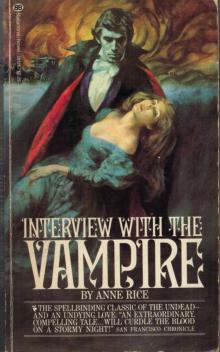 Interview with the Vampire
Interview with the Vampire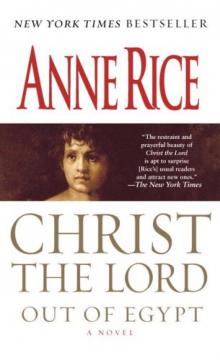 Christ the Lord: Out of Egypt
Christ the Lord: Out of Egypt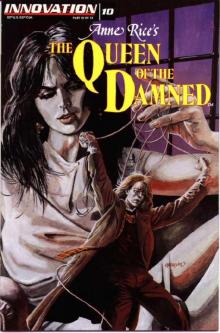 The Queen Of The Damned
The Queen Of The Damned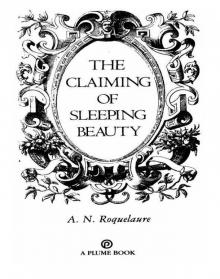 The Claiming of Sleeping Beauty
The Claiming of Sleeping Beauty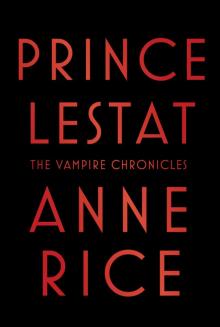 Prince Lestat
Prince Lestat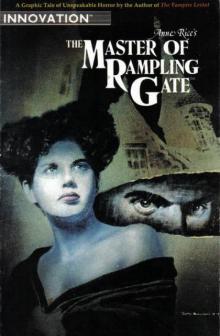 The Master of Rampling Gate
The Master of Rampling Gate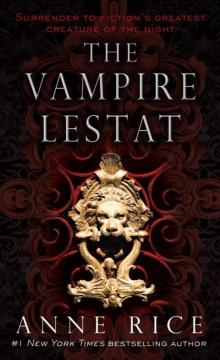 The Vampire Lestat
The Vampire Lestat Blood Canticle
Blood Canticle Beauty's Release
Beauty's Release Pandora
Pandora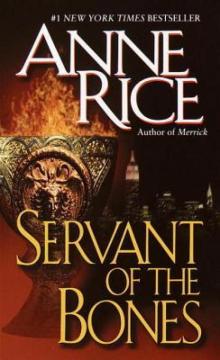 Servant of the Bones
Servant of the Bones Of Love and Evil
Of Love and Evil Beauty's Punishment
Beauty's Punishment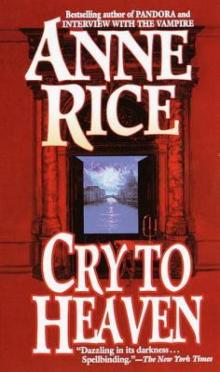 Cry to Heaven
Cry to Heaven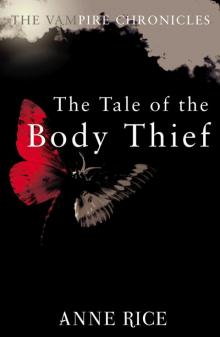 The Tale of the Body Thief
The Tale of the Body Thief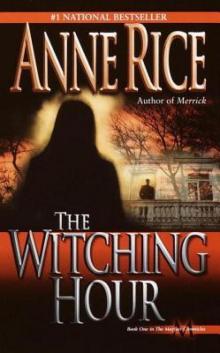 The Witching Hour
The Witching Hour Memnoch the Devil
Memnoch the Devil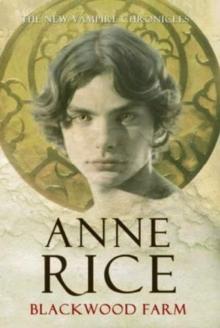 Blackwood Farm
Blackwood Farm Beauty's Kingdom
Beauty's Kingdom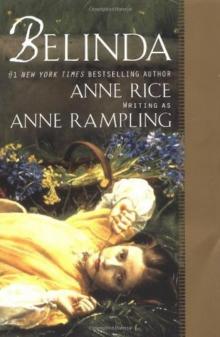 Belinda
Belinda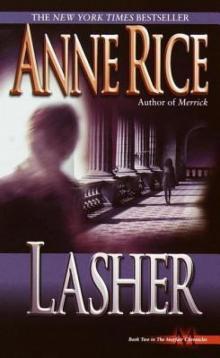 Lasher
Lasher Vittorio, the Vampire
Vittorio, the Vampire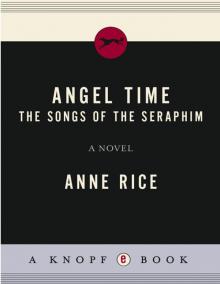 Angel Time
Angel Time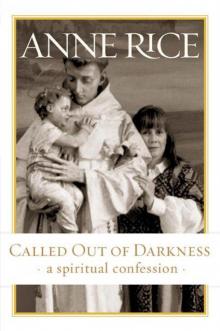 Called Out of Darkness: A Spiritual Confession
Called Out of Darkness: A Spiritual Confession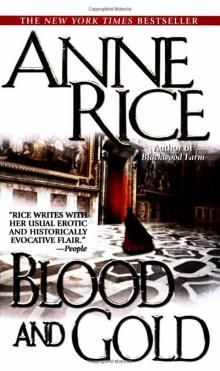 Blood And Gold
Blood And Gold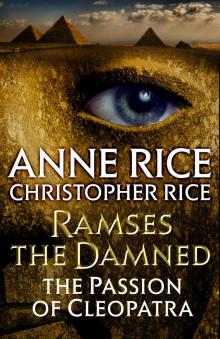 The Passion of Cleopatra
The Passion of Cleopatra Taltos
Taltos Exit to Eden
Exit to Eden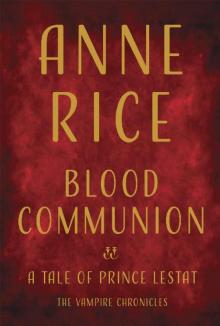 Blood Communion (The Vampire Chronicles #13)
Blood Communion (The Vampire Chronicles #13)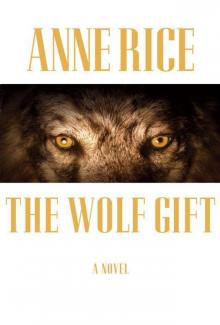 The Wolf Gift
The Wolf Gift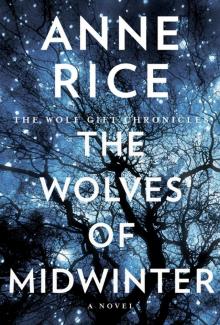 The Wolves of Midwinter
The Wolves of Midwinter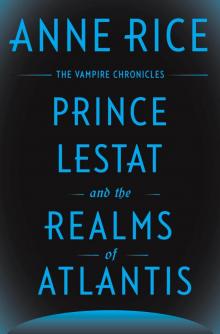 Prince Lestat and the Realms of Atlantis
Prince Lestat and the Realms of Atlantis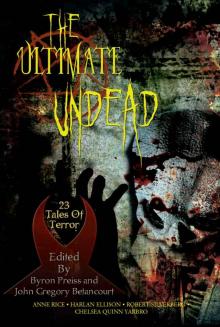 The Ultimate Undead
The Ultimate Undead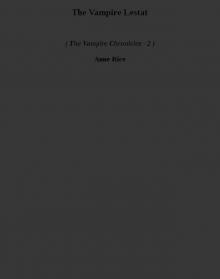 The Vampire Lestat tvc-2
The Vampire Lestat tvc-2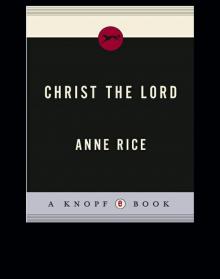 The Road to Cana
The Road to Cana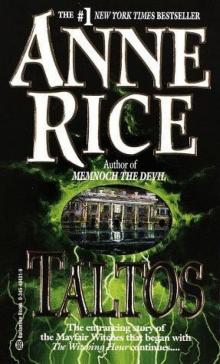 Taltos lotmw-3
Taltos lotmw-3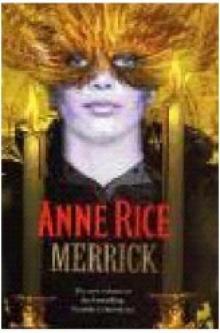 Merrick tvc-7
Merrick tvc-7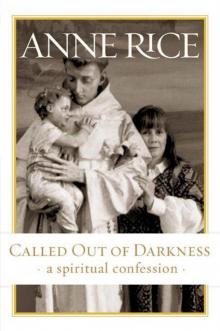 Called Out of Darkness
Called Out of Darkness Pandora - New Vampires 01
Pandora - New Vampires 01 Bllod and Gold
Bllod and Gold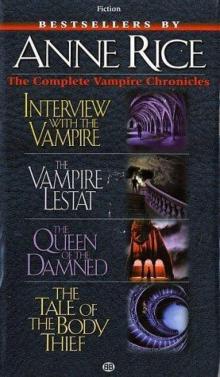 The Queen Of the Damned: Vampire Chronicles
The Queen Of the Damned: Vampire Chronicles The Sleeping Beauty Trilogy
The Sleeping Beauty Trilogy The Claiming of Sleeping Beauty b-1
The Claiming of Sleeping Beauty b-1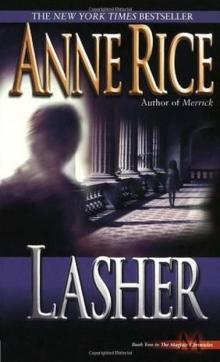 Lasher lotmw-2
Lasher lotmw-2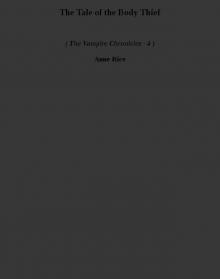 The Tale of the Body Thief tvc-4
The Tale of the Body Thief tvc-4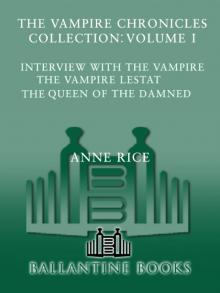 The Vampire Chronicles Collection
The Vampire Chronicles Collection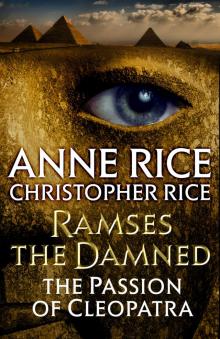 Ramses the Damned
Ramses the Damned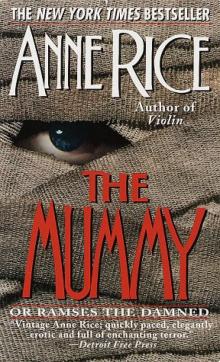 The Mummy - or Ramses the Damned
The Mummy - or Ramses the Damned Vittorio, The Vampire - New Vampires 02
Vittorio, The Vampire - New Vampires 02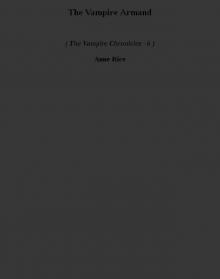 The Vampire Armand tvc-6
The Vampire Armand tvc-6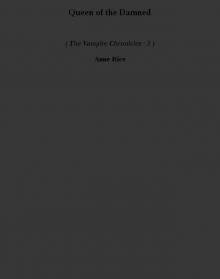 Queen of the Damned tvc-3
Queen of the Damned tvc-3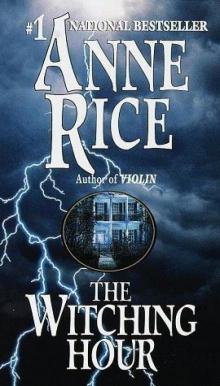 The witching hour lotmw-1
The witching hour lotmw-1 Feast of All Saints
Feast of All Saints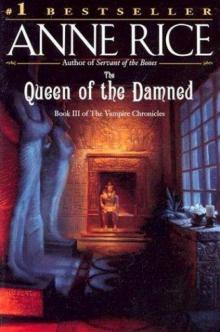 Queen of the Damned
Queen of the Damned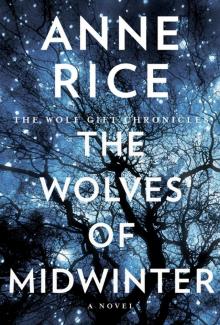 The Wolves of Midwinter twgc-2
The Wolves of Midwinter twgc-2 The Mummy
The Mummy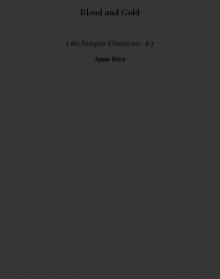 Blood and Gold tvc-8
Blood and Gold tvc-8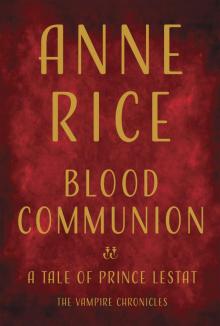 Blood Communion
Blood Communion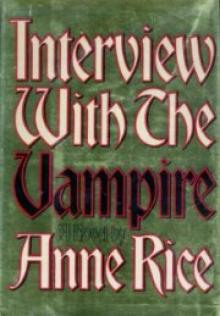 Interview with the Vampire tvc-1
Interview with the Vampire tvc-1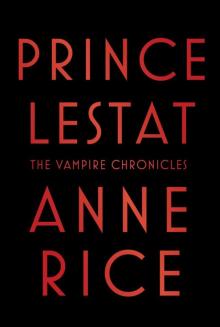 Prince Lestat: The Vampire Chronicles
Prince Lestat: The Vampire Chronicles